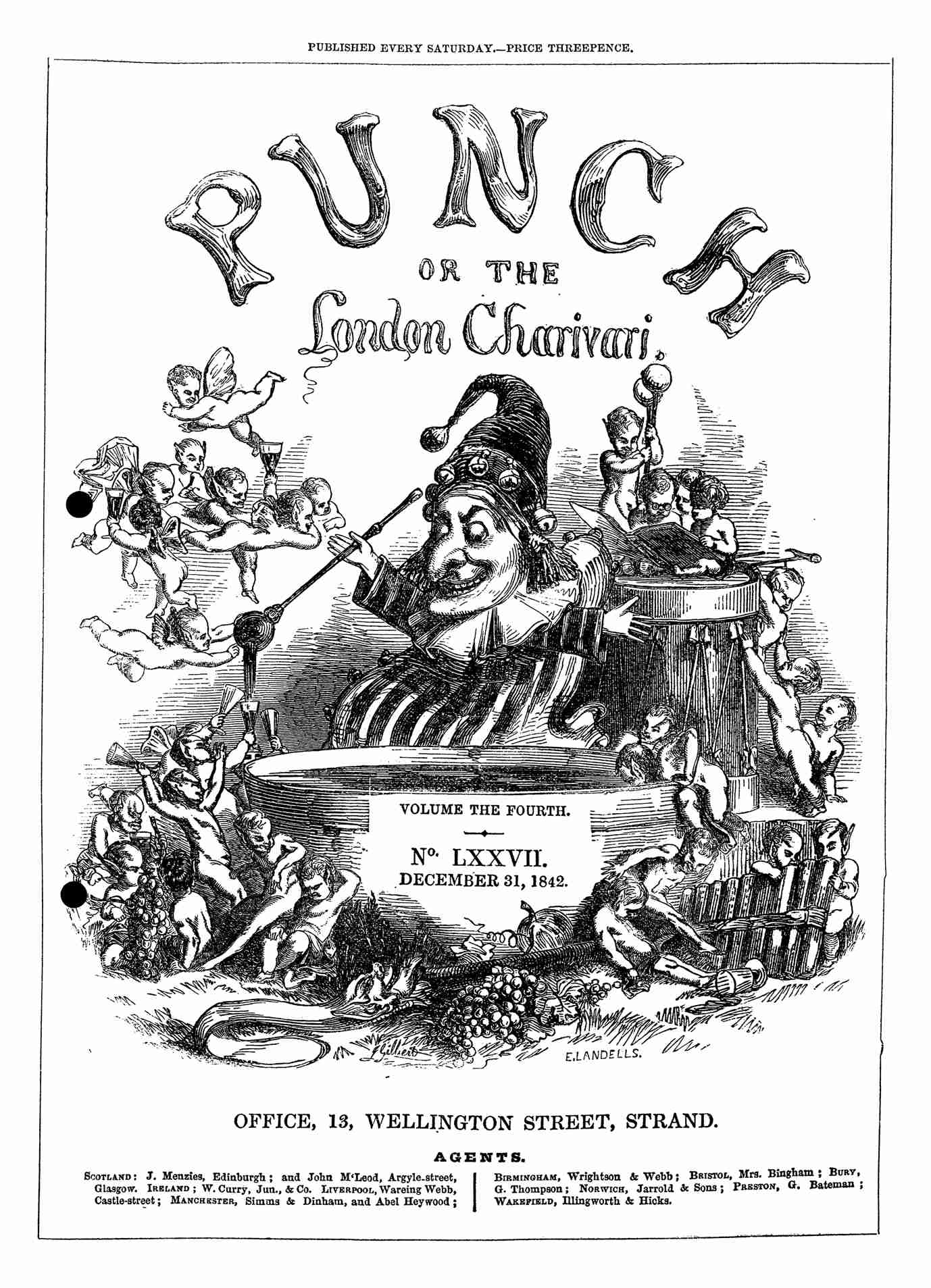The Voice of Satirical England
Founded in 1841, Punch magazine was the definitive British periodical for satire, social commentary, and wit throughout the Victorian era and beyond. Launched by Henry Mayhew and engraver Ebenezer Landells, it was conceived as a “charivari” – a cheerful ruckus of mockery and mirth, inspired by the French *Le Charivari*. With the mascot Mr. Punch from the Punch and Judy puppet shows, the magazine quickly gained a reputation as the jester of public affairs.
The magazine grew to become a respected and influential institution in Britain, coining the term “cartoon” in its modern usage and publishing trenchant illustrations, verses, and essays that skewered hypocrisy, pomposity, and politics with unerring precision.
Jerrold Joins the Fray
Douglas William Jerrold was one of the early and defining voices of Punch. Invited to contribute by Mark Lemon, the magazine's first editor, Jerrold brought an incisive and deeply moral wit to its pages. His celebrated series, Mrs Caudle's Curtain Lectures, debuted here, as did countless political jabs, theatrical reviews, and sharp observations on Victorian life.
Jerrold’s voice was always spirited, often acerbic, and unmistakably concerned with the plight of the poor, the absurdity of aristocratic airs, and the injustices that lurked behind propriety. His writing helped elevate the magazine beyond mere lampoonery into a powerful organ of social conscience.
Punch’s Legacy
Throughout the 19th century, Punch featured a legendary staff including William Makepeace Thackeray, John Leech, George du Maurier, and later, even P. G. Wodehouse and A. A. Milne. It influenced the tone of public discourse and helped define British humour for generations. The magazine was known for supporting moderate reform, promoting literacy, and condemning corruption and ignorance.
Politicians feared being “punchified.” Satirical cartoons, including the works of Tenniel, wielded more influence than many broadsheets. Jerrold’s early contribution laid the philosophical and tonal foundation upon which much of that power was built.
Decline and Closure
Though Punch’s golden age lasted into the early 20th century, by the 1940s it began to feel increasingly quaint. It ceased publication in 1992 after 151 years. A brief revival from 1996 to 2002 attempted to modernize its spirit but failed to resonate with contemporary audiences. Yet its archives remain a treasure trove of British cultural history — and Jerrold's pen was among its brightest.
Jerrold’s Enduring Satire
Jerrold’s satire in Punch blended humour with principle. He defended the downtrodden, ridiculed hypocrisy, and strove always to prick the conscience of a society too often content to look away. His legacy in the pages of Punch is not merely in the laughter he provoked, but in the compassion he provoked alongside it.
